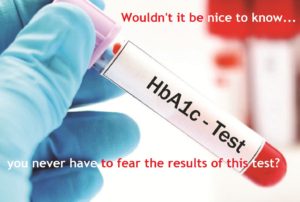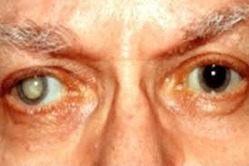
Hands up if you don’t know what HbA1c is? Very honest of you… For those us who need reminding, it’s simply a blood test to see what your average blood glucose (sugar) levels have been for the past two to three months. If you have a high HbA1c, it means you’ve got too much sugar in your blood. So what? Well, you’re then likely to develop diabetes complications. So, if you want to avoid nasty stuff, such as blindness, limb amputation and increased risk of heart disease, can a plant-based diet help?
Blog Contents
High or low is best?
High levels of HbA1c are not what you want. You want to have results that show that you’re blood sugar levels over the past 2-3 months have been low – that’s a sign that you’re not heading towards diabetes and all the accompanying horrors and inconveniences that this completely avoidable disease brings with it.


A recently published study 1 is a response to the fact that diabetes is now a major public health concern around the world – with around 180 million known cases and every indication of the numbers increasing hugely over the next decades 2 .
Study background
Previous blogs 3 have already considered the evidence that a plant-based diet can reverse diabetes mellitus (also known as Type 2 Diabetes) in a way that no current pharmaceutical or surgical method can even approach – and we’ve known this for many decades. But this is the first study to critically appraise whether plant-based diet reduces the HbA1c level compared to conventional diet.
Study method
The researchers reviewed and appraised relevant previous literature on this subject in order to evaluate whether or not there was sufficient evidence to suggest that HbA1c would be reduced in a plant-based diet group compared to a conventional diet group.
Study results
At a 22 weeks follow-up of both groups, they found that there was a significant reduction in HbA1c levels in the plant-based group compared with the conventional diet group. And the results were not temporary.
At a 72 week follow-up, they found that the plant-based diet group once again showed significant reduction in HbA1c compared with the conventional diet group.
Study conclusion
The authors’ conclusion was no surprise: “In patients with type 2 diabetes mellitus, changing to a plant-based diet reduced HbA1c levels compared with patients with conventional diet.”
Final thoughts
You can get home test kits for your HbA1c levels 4 , or get simple finger-prick tests that looks at a wide range of additional health indicators (such as cholesterol and vitamin/mineral levels, organ health, anaemia, fatty acid concentrations etc) which you then send off to a laboratory and get an email with a detailed report and doctor’s comment. I use Medichecks 5 myself.
Your health is in your hands TODAY. Don’t wait for obvious symptoms of disease before switching to a WFPB diet. The only side-effect you’ll experience is improved health, vitality and life-span. A win-win situation for your health and the health of the planet 6 .

References
- Acta Med Indones. 2018 Jul;50(3):260-267. Plant-based Diet for HbA1c Reduction in Type 2 Diabetes Mellitus: an Evidence-based Case Report. Utami DB, Findyartini A. [↩]
- Vegetarian Diets and the Risk of Diabetes [↩]
- Diet Reverses Type 2 Diabetes – How Long Have We Known This? [↩]
- Home test kit for HbA1c levels. [↩]
- Medichecks simple blood tests. [↩]
- A Sustainable Diet for Our Planet [↩]